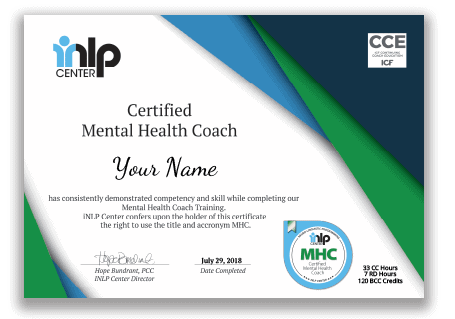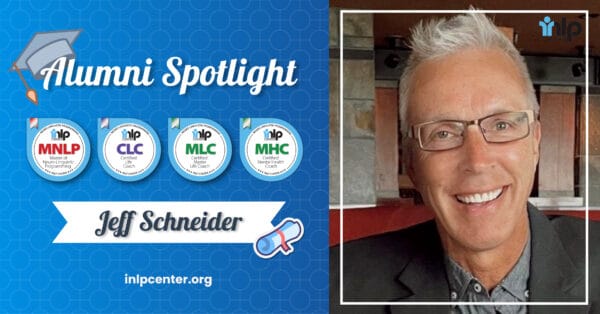Mental health coaching makes its debut in a world that knows it has a mental health problem. The World Health Organization continues to remind us that the number one disability on the planet – depression – continues to rise at alarming rates (especially since the beginning of the Covid-19 pandemic).
Therapists are increasingly overwhelmed. A 2021 New York Times survey cast mental health workers in a similar light as healthcare workers. They are tired and unable to accommodate the surging demands of an ever-increasing clientele.
While doctors and counselors struggle with the workload, is there a place for mental health coaching in all this? Yes!
Mental health coaching is perhaps the biggest opportunity in both coaching and mental health.
Here’s why mental health coaching is desperately in need..
- The world is increasingly uncertain
- More people are depressed than ever
- Mental health awareness is at an all-time high
- The mental health industry has become dependent upon drugs as treatment
- There aren’t enough counselors to go around
While the counseling industry holds onto inner conflict about mental health coaching, clients need greater access and more options to improve their emotional lives. How might mental health coaching be of service? How does it work?
To understand mental health coaching, let’s look at how it might play out in everyday situations.
Imagine the following scenario:
At mid-afternoon, you get a text from a colleague. It’s a small group dinner invitation – just a group of co-workers going out after work on Friday. It sounds like fun and you don’t have existing plans for this Friday evening, yet you hesitate, replying that you will confirm by the end of the day.
The relevant issue for mental health is not in getting the dinner invitation per se but in how you process and respond to it. What’s most interesting to a mental health coach, therefore, is what happens during the period of hesitation, as this period of interpretation and evaluation directly affects your quality of life. The dinner invitation and circumstances surrounding it are mere facts. What you do with those facts is the real mental health story. Let’s look at that.
For example, you might reply to the invitation in one of the following healthy ways:
Mentally healthy responses:
- After reviewing your schedule and double-checking with yourself that you want to go out with them, you send a quick text to let them know. Plans are confirmed and you’re looking forward to the event.
- Alternatively, after reviewing your scheduling and double-checking with yourself to make sure you really want to go, you may decide for any reason that you will not be attending. At that point, you graciously let the host know.
In this case, the truth is relatively simple. You’ve received a dinner invitation. You may attend if you want and if your schedule allows. After weighing all the factors, you let the host know your decision, showing an appropriate amount of appreciation for being invited. We could probably think of other mentally healthy and satisfying responses, yet all of them must include a yes or no reply. As long as you’re able to give a clear and socially appropriate answer that includes a yes or no, you can feel satisfied knowing you handled the situation well. All this assumes that your inner feelings match the outer reply.
But what if you get stuck in the decision-making process? This is where mental health coaching come into play. For example, you might be conflicted about going to the dinner and struggle to find the words to adequately reply to the host. At length, you could do one of the following:
Mentally Unhealthy Responses
- While you wanted to go, after thinking about it, you begin to doubt. You tell yourself that no one there likes you and you are only being invited because they feel obligated to invite you but don’t really want you to come.
- Suddenly, you feel guilty for wanting to go, telling yourself that you should be working on your side business instead of partying with friends.
- Upon receiving the invitation, you are offended. Who are they to think you’d actually go out to dinner with them?
- You cannot or do not want to go, but you agree to show up anyway because you don’t want them to think you aren’t interested.
- You would like to go but you convince yourself that it would be impossible to have a good time, given how introverted you are.
- You go but spend the evening anxiously comparing your looks, intelligence, and clothing style to that of others at the dinner.
- You cannot go and do not go but spend the evening convinced that they are sitting around the dinner table talking about how you dissed them.
We can see that mental health in this case has less to do with what happens in the world (the dinner invitation) and more to do with how we process and respond. To complicate matters, there do not seem to be reliable mainstream guidelines that suggest how to best process what happens in the world around us. This is where mental health coaching is most valuable.
Interpreting, Evaluating, Deciding, and Communicating
How are we to interpret the world and decide what to do? There are more mental models out there than anyone would ever need! There is, however, one model that all other models have in common. Yes, one model to rule them all! In Neuro-Linguistic Programming, we call it the VAK model but it’s merely an awareness that we perceive communication through the senses, primarily sight, sound, and feeling (visual, auditory, and kinesthetic = VAK). Images, sounds, and feelings are the building blocks of the stories we tell ourselves. This is where our mental health coaching journey begins.
In one of the scenarios above, we suggested the following:
While you wanted to go, after thinking about it, you begin to doubt. You tell yourself that no one there likes you and you are only being invited because they feel obligated to invite you but don’t really want you to come.
We can see this as a story. Upon considering the invitation, you begin to imagine (an image in your mind’s eye) that the other dinner guests are treating you rudely, not giving you a chance to participate as an equal, and acting generally annoyed that you came. Seeing it play out like a movie in your head, you begin to (not surprisingly) feel like you’d be better off staying at home this Friday evening!
Your story of rejection may come complete with additional imagery, sound, and feeling that showcases past mistakes, future fears, and any other phenomena this part of you believes are likely to manifest at the prospective dinner. Interestingly, you may (rationally) not even agree with the story, knowing logically that you won’t be ridiculed and that everything will be fine, as usual. Still, you may not be able to shake off the anxiety, leaving you more anxious about the event than ever.
Mental Health Coaching In Action
How would a mental health coach trained at the iNLP Center handle this situation? This is where the principle of Interactive Mind comes into play. Let’s break it down.
- You’ve been invited to a dinner with colleagues.
- You want to go and have no conflicting events plans.
- Part of you, however, objects to going.
- You can see, hear, and feel the objecting part.
A mental health coach would help you negotiate a solution with the part of you that is objecting to attending the dinner invite. Once we can see, hear, and feel the objecting storyline, we are free to engage. This is the key – to engage the parts of you that are getting in the way. (Engage, not destroy).
Once we can consciously see, hear, and feel a part of ourselves on the inside, we’re ready to work on it. And this is where it gets interesting. In mental health coaching, we aren’t theorizing, diagnosing, or merely sitting around talking about the problem. We approach the problem directly in order to resolve it with help from the Interactive Mind principle.
What is Interactive Mind?
Interactive Mind suggests that, just like in relationships with outside people, communication is a two-way street. This is more obvious in outside relationships however, the principle of Interactive Mind holds up beautifully in mental health coaching. The principle suggests the following:
When your mind communicates with you, it needs you to respond in order to serve your needs in the best way possible.
Think about it. On considering whether or not to attend the event, an inner voice warns that everyone is going to hate you. That is quite a claim. Usually, we desperately want these dissenting inner voices to go away – to disappear entirely. And who wouldn’t want a rogue part of them to disappear sometimes? However, they don’t just leave you alone, do they? Why not?
Because you cannot get rid of yourself. Moreover, part of you has what it (obviously) considers a valid concern (whether or not the concern is rational) and it’s probably been bugging you about it for years. If it hasn’t given up yet…
The best course of action is to engage the part of you with the objection and discover what it needs. It’s not that different from dealing with an actual person in your party who insistently objects. If you want a chance at understanding and overcoming the objection, ignoring that person won’t work.
In mental health coaching, coaches and clients alike are often positively surprised when they realize they can communicate with their unconscious minds in this manner. They aren’t stuck taking inner criticism for a lifetime! They are no longer helpless inside their own skin.
Interactive Mind has the potential to revolutionize our relationships with ourselves because it shows us how to directly influence the part of us that has a problem at any given time.
Become a Mental Health Coach
If you are interested in training to become a mental health coach consider the iNLP Center’s Mental Health Certification Track. This track provides 225 coach training hours, is ICF Level 2 Accredited program for the PCC credential, and includes five professional certifications. Plus, get lifetime training!
A neurodiversity coach is a professional who specializes in supporting individuals who are neurodivergent. Neurodiversity is the concept that variations in human brain function and behavior are natural and normal, rather than disorders. This includes conditions such as ADHD, Autism Spectrum Disorder (ASD), dyslexia, dyspraxia, Tourette Syndrome, and other neurodevelopmental differences. The core purpose of…
Adult ADHD is a complex and often misunderstood condition. As coaches, it’s crucial to separate fact from fiction to effectively support neurodivergent clients. Misconceptions can lead to ineffective coaching strategies and even harm the client-coach relationship. Let’s debunk some common myths and explore the realities of adult ADHD. Myth 1: ADHD is a Childhood Disorder…
Continue Reading Adult ADHD: Realities Every Coach Needs to Know
“Dyslexia” – a word often associated with frustration and academic struggles. But what if we shifted the narrative? What if we viewed dyslexia not as a deficit, but as a unique cognitive landscape brimming with untapped potential? That’s where the transformative power of coaching dyslexia comes into play. It’s about empowering individuals to navigate their…
Continue Reading Coaching Dyslexia: From Struggle, to Strength
ADHD, or Attention-Deficit/Hyperactivity Disorder, affects millions worldwide, presenting unique challenges in areas like focus, organization, and emotional regulation. This has created a growing demand for specialized support, making ADHD coaching a rewarding and impactful career path. If you’re passionate about helping individuals with ADHD thrive, becoming an ADHD coach might be your calling. Understanding ADHD:…
Continue Reading The Expert’s Guide: Becoming a Certified ADHD Coach
Coaching individuals with neurodiversity demands a nuanced and adaptable approach, one that acknowledges and celebrates the unique cognitive landscapes of each client. Neurodivergents encompassing conditions like ADHD, Autism Spectrum Disorder (ASD), and dyslexia, present a spectrum of strengths and challenges that necessitate personalized strategies if you are looking to become a Neurodivergent coach. If you…
Continue Reading Neurodiversity Coaching: Strategies for Success
Jeff Schneider, a seasoned coach and graduate of the iNLP Center, dedicates his practice to empowering individuals across diverse professional landscapes. His expertise spans a spectrum of clientele, including high-achieving salespeople, influential executives, and fellow coaches navigating the complexities of building thriving businesses. Driven by a deep-seated desire to empower others, Jeff is currently penning…









